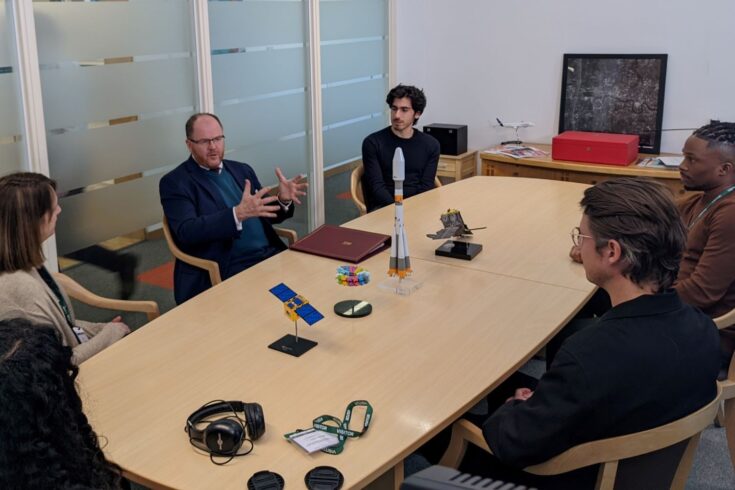Good innovation solves clear problems
I started my project, Gwaan, at the start of the pandemic. This was at a time when isolated people around me were suffering from cabin fever, and gyms had closed due to the rapid spread of the virus.
My initial aim was to ensure personal training could be achieved remotely, but it quickly became clear that health issues from inadequate exercise would outlive the pandemic.
Gwaan had a future as an effective fitness application, a smart way of gamifying workouts for younger people and a diagnostic tool in healthcare.
Inclusivity in technology
Thanks to Innovate UK, and further funding from Microsoft, I have received funding for two years in a row and had the privilege of polishing off my artificial intelligence model. I am extremely fortunate to have the opportunity to be a Young Innovator and I am always looking for problem-solvers that can join this journey with me.
Winning the Innovate UK follow-on fund and being featured in British Science Week incited questions about who I am.
I do not look like the conventional stereotype of a scientist; black people are very much the minority in technology. I didn’t undergo the classic education in computer science, I am relatively self-taught.
There are many like me who may be less represented in the science community and this, therefore, doesn’t encourage more minorities to advance their businesses with technology.
Closing the skills gap requires us to be imaginative in how we upskill
I was nicely surprised that the Minister for Science, Research and Innovation wanted to not only explore why this might be, but also wanted to hear my solutions.
I joined the meeting with other hard-working entrepreneurs, experts and architects. The agenda of the meeting was ‘innovation nation’; understanding how Britain can create more opportunities in technology and scale small businesses.
When asked to share my thoughts on how we could accelerate tech innovation, I urged that we focus on education first, and not just education as we know it.
My life of coding humbles me with the reality that I have embarked on a life of constant learning. To keep up with the world of innovation, we have to accept that life-long, fast-paced learning is the norm, and we should be constantly upskilling workers.
It’s great to see important government incentives, like Innovate UK’s Young Innovator programme, upskilling young people. I also strongly advise that we find policies that encourage mature students and non-conventional education routes: transition courses and online modules in data science, for example.
Exposing children to a larger range of opportunities in tech
We can aid the closing of the skills gap by targeting all areas of education. Some of my positive influencers growing up were my supportive teachers, but school lacked foresight and facilities when it came to recommending career paths.
Tech industries can relieve this pressure from teachers, keeping students informed of the latest career opportunities in technology and helping them find their potential.
In the same vein, we should ensure that demographics that are less inclined to pursue a higher education see innovation as approachable. For example, ensuring children from minority backgrounds have role models in technology and more apprenticeships in data.
Video credit: Innovate UK
On-screen captions and an autogenerated transcript are available on YouTube.
Further information
Connect with Innovate UK on LinkedIn
Follow Innovate UK on Facebook
You can go to the new Innovate UK website
You can go to the Innovate UK EDGE website
Subscribe to our YouTube channel
Sign up for our email newsletter
Top image: Innovate UK Young Innovators meet Science Minister George Freeman (credit: Helen Meade, UKRI)




